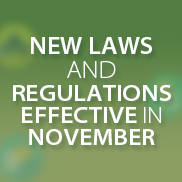Mutual trust required for new flight delay system
According to China’s new flight regulation, in case of flight delay due to bad weather passengers are required to cover their accommodation by themselves. The general public has expressed its concern over this issue, asking “How can we know if a delay is due to bad weather or airline problems?”
This new flight regulation was issued by China's Ministry of Transport. An article in Legal Daily said that a mutual-trust system between airlines and passengers is needed in implementing the new regulation.
In fact, for a long time in China, it has been the airlines’ responsibility to cover accommodation in case of flight delay caused by force majeure such as bad weather. But this is different from international practice.
The policy derived from Chinese passengers’ high expectation of airline service. In China, flying has been long considered a symbol of status and an expensive way to travel. Though people’s living standards have improved, they still think with a high price should come top service.
But an administrator from a big Chinese airline said, “There wasn’t any legal basis or contract requirement for the airline to do it. They did so only to improve their service quality and competitiveness; they undertook the responsibility beyond the contract.”
And in fact in 2010 the China Air Transportation Association released a regulation on transport quality and carrier service which provided that “passengers can be responsible for their accommodation in such cases.” The latest regulation has turned “can” into “should” and, according to Legal Daily, removed the cause of disagreement, but paying passengers may feel otherwise.
Often passengers cannot understand the flight delay because it’s sunny at their starting point, and bad weather at their destination or along the flight route is invisible. Besides, weather or other information from military air traffic control can’t be released which may also lead to misunderstanding.
Nanfang Daily said that if a third-party authority can serve as judge, customers may have more trust in what airline companies say. An article from Legal daily advised relevant administrative departments to establish a third-party authority for information collection and release.
Whether it be a consumers’ association or some other organization, an independent third-party authority is needed for information verification so that passengers can know the truth, said Liu Junhai, vice-president of the China Consumers Association.
Liu also proposed to shift the burden of proof from passengers to airlines, requiring them to have on hand strong evidence including documentary material and witness statements at the release of flight delay information.
But things may not always go smoothly. “Airlines will sometimes need to collect evidence that may come from different departments. For example, in court, airlines may have to support their behavior with ground service and traffic control service evidence,” said Dong Nianqing, president of the Beijing aviation law society.
The Civil Aviation Administration of China has an affiliated consumer affairs center responsible for passenger complaints, which Dong says has given a lot of service. In addition to the center, passengers may also take their complaints to the airline or a third-party authority.

